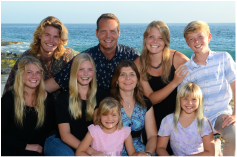|
The first-known case of Ebola on American soil was reported in late September in Texas. Liberian national Thomas Duncan contracted the Ebola disease when he was visiting Liberia and brought it to America. Ebola is an often fatal infectious disease that originated in Africa in animals. It spreads to humans when there is bodily contact, such as from eating an animal that has the disease. In humans, it spreads when there is contact between blood, secretions, bodily fluids of infected people, and when there is contact with surfaces and materials contaminated with these fluids. Symptoms of Ebola first resemble the flu but increase with severity over time. There is no vaccine against Ebola. Ebola was first known in 1976. Currently, the Ebola outbreak in West Africa is the worst ever, killing approximately 4,000 people.
Duncan helped people who had the disease, and then flew to the United States, taking at least three planes. He flew to Brussels, then to Washington, and then to Dallas. Reportedly, he told airport screeners that he had not been in contact with people infected with Ebola. After flying to Dallas, Duncan went to a hospital in Dallas with symptoms of fever. The doctors checked him, prescribed him antibiotics, and sent him home. A few days later, he returned in an ambulance. It was then he was diagnosed with Ebola. Duncan lived with his partner, her son, and her two nephews. They are still in the apartment. The boys who had contact with Duncan went to school after he had been diagnosed with Ebola. School officials then sent the boys home. Some countries, like Britain and France, have refused entry from those travelling from countries where there is an Ebola outbreak. The United States, however, has not done this. In 2005, the Centers for Disease Control and Prevention (CDC) proposed new rules to keep infectious diseases out of the United States. These rules involved the forced quarantine of travelers who exhibited symptoms of serious diseases while en route to the United States. In 2009, the Obama administration scrapped the rules, after groups like the ACLU complained the rules were discriminatory. In mid-September, President Obama said, “The chances of an Ebola outbreak here in the United States are extremely low. We've been taking the necessary precautions, including working with countries in West Africa to increase screening at airports so that someone with the virus doesn't get on a plane for the United States. In the unlikely event that someone with Ebola does reach our shores, we've taken new measures so that we are prepared here at home.” Within two weeks, the first Ebola case in the United States was reported. The apartment Duncan lived in went for at least one week from being sanitized after Duncan was admitted to the hospital. Disagreement between two federal bureaucracies how to handle the items within the apartment caused the delay. One bureau, the Center for Disease and Control, considered the items medical waste. A second bureau, the Department of Transportation, thought the waste was illegal to transport. Until this was resolved, no sanitation could happen of the apartment. Meanwhile, Duncan’s partner, her son, and two nephews are quarantined in the apartment. 1. Based on Duncan’s travelling, and the activities of those he lived with, about how many people do you think came into contact with him while he had the virus, before he was admitted to the hospital? 2. What are a few simple things everyone can do to ward off sickness? 3. Do you think the U.S. should ban travel from countries where there are Ebola outbreaks?
0 Comments
Leave a Reply. |
John De GreeJohn De Gree writes the current events with a look at the history of each topic. Articles are written for the young person, aged 10-18, and Mr. De Gree carefully writes so that all readers can understand the event. The perspective the current events are written in is Judeo-Christian. Receive Articles and Coupons in Your EmailSign Up Now
For Email Marketing you can trust. Archives
June 2024
Categories
All
|
|
SUPPORT
|
RESOURCES
|
|


 RSS Feed
RSS Feed



